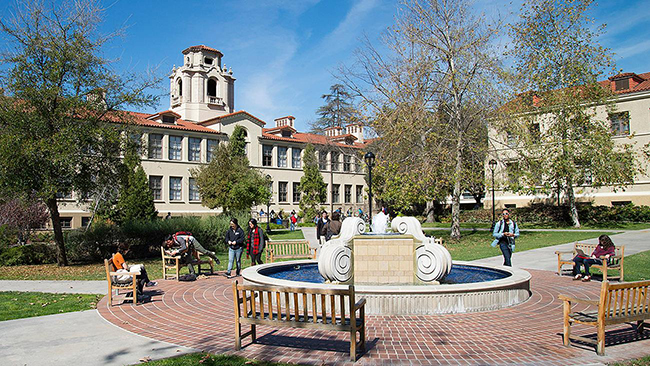City, Golden State go head-to-head next week in court
The trial to determine control over the Claremont water system is set to begin on Monday, June 13.
The proceedings will be the city’s golden opportunity to convince Los Angeles Superior Court Judge Richard Fruin that it has the standing to claim eminent domain over the system, which is currently operated by Golden State Water Company (GSW).
City Manager Tony Ramos is confident that the judge will rule in the city’s favor.
“Our attorney will present a very well-documented case that the city has the right to take over the system,” he said.
Attorneys from Best, Best and Kreiger, including Ken MacVey and John Holloway, will be representing Claremont at the trial.
The impetus for the acquisition was repeated rate applications by GSW that saw Claremont’s water rates dramatically increase over the years. According to the city, Claremont pays an exorbitantly higher amount for their water than neighboring cities.
Golden State has long contended that the water system is not for sale and has refused formal requests for purchase from the city. The company has called into the question the necessity of the water takeover at all.
The trial is expected to last several weeks, according to a release from the city, and both sides will present expert witnesses arguing for and against the acquisition of the system.
Claremont Public Information Officer Bevin Handel explained that municipal control over the water system is favorable, as opposed to a private company, because of the potential ease of access and input from Claremont residents, as well as incorporation with the city’s sustainability plans.
“I believe it is in the best interest of the public that this belongs in municipal ownership,” she said.
An opening 39-page brief filed by the city ahead of the June 13 trial outlines a number of reasons why they should take over the system, including high rates from GSW, mismanagement of the system by GSW and what the city says are unsafe operations of the system.
A specific point of contention the city has against Golden State is a surcharge called the water revenue adjustment mechanism (WRAM), which the city describes as a charge added to customers’ bills if their water usage falls below the company’s target. The city says it was implemented to keep GSW in the black as Claremonters work toward sustainability and reduce water usage.
“I don’t know any other business that’s guaranteed a profit when they don’t project correctly,” Ms. Handel said.
Golden State filed its own 183-page brief on May 27 claiming, in part, that it’s not necessary for Claremont to take over a water system that has been operated by GSW since 1929.
“Now the city wants to take the Claremont water system, by the power of eminent domain, in order to provide the same water from the same wells through the same pipes to the same residents and businesses that Golden State serves,” the brief outlines. “The most basic question to be resolved in this court trial is simple: is it necessary for the city to do so? The answer to that question should be a resounding ‘no.’”
GSW also claims that residents will not see their water rates fall under municipal control.
“To the contrary, the debt load that Claremont will be forced to take on to purchase the system assures that those in Claremont will actually be paying higher rates for the same water,” the brief states.
Ms. Handel noted that, “the water system currently generates sufficient revenue to support an acquisition price of up to $80 million, without raising existing rates.” The actual rates won’t be determined until the city takes over managing the system.
The move to acquire the system received overwhelming voter approval—72 percent in favor—in November 2014 through Measure W, which approved up to $135 million in bonds for the potential purchase. A lawsuit formally claiming eminent domain was filed on December 9, 2014.
The system includes 11,000 service connections and 19 wells, transmission lines, booster stations, pressure regulating valves and reservoirs across Claremont, as well as parts of Upland and unincorporated Los Angeles County.
An agreement with the city of La Verne was reached in October 2015 outlining that Claremont’s neighbor to the west would operate the system, should the city succeed in taking it over.
Representatives for Golden State Water did not respond to a request for comment as of press time.
Opening statements for the trial will take place at the Los Angeles Superior Court at 8:30 a.m. in department 15.
—Matthew Bramlett
news@claremont-courier.com










0 Comments